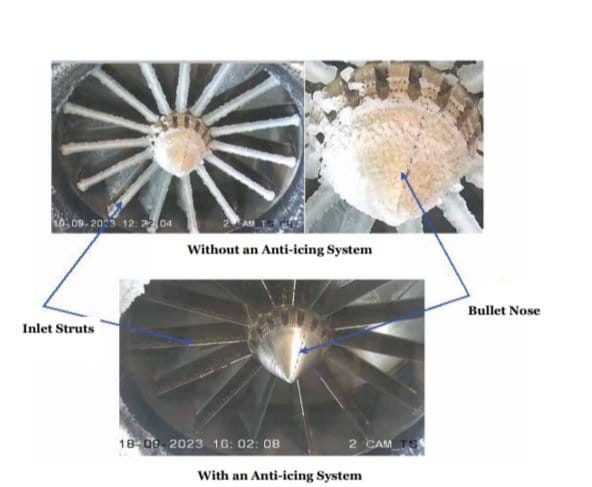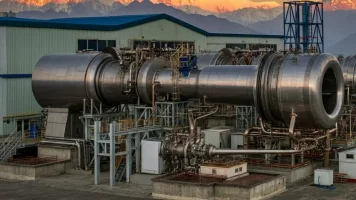- Views: 5K
- Replies: 30

In a significant step forward for aviation safety, the Gas Turbine Research Establishment (GTRE) has developed India's first indigenous anti-icing technology for aero engines.
This groundbreaking achievement addresses a critical safety concern, as ice formation on aircraft and engine surfaces can lead to catastrophic accidents.
Icing occurs when aircraft fly through clouds containing supercooled water droplets, which freeze upon contact with surfaces. The accumulation of ice disrupts airflow, compromising aerodynamic performance, flight stability, and engine functionality.
Historically, aircraft icing has been responsible for numerous fatal accidents worldwide.
To mitigate these dangers, aircraft and engines rely on ice protection systems. Anti-icing systems, in particular, prevent ice formation by heating surfaces using either electricity or hot air from the engine compressor. Until now, India lacked the capability to develop such technology domestically.
The GTRE's project focused on designing a hot air anti-icing system for modern gas turbine engines, suitable for both manned and unmanned aircraft. The system targets critical components like the engine inlet casing's struts and bullet noses, which are most susceptible to ice buildup.
Leveraging a combination of conventional and additive manufacturing techniques, the GTRE produced two test pieces of the engine inlet casing within a remarkably short timeframe. These test pieces incorporated four different anti-icing designs to optimize the validation process through icing wind tunnel tests.
The design methodology was rigorously validated using test data from icing wind tunnel tests conducted at the CIRA facility in Italy. The GTRE's test hardware successfully demonstrated anti-icing capabilities under simulated icing conditions, meeting all necessary certification requirements.
This breakthrough equips GTRE with the expertise to design anti-icing systems for any advanced gas turbine aero engine. Their capabilities now extend to conducting numerical studies to calculate crucial icing characteristics, like water catch efficiency, vital for aero-engine and aircraft development programs.
The implications of this indigenous technology are far-reaching. It promises to enhance the safety and operational capabilities of both military and civil aviation in India. Moreover, this achievement underscores India's growing self-reliance in critical aerospace technologies.

